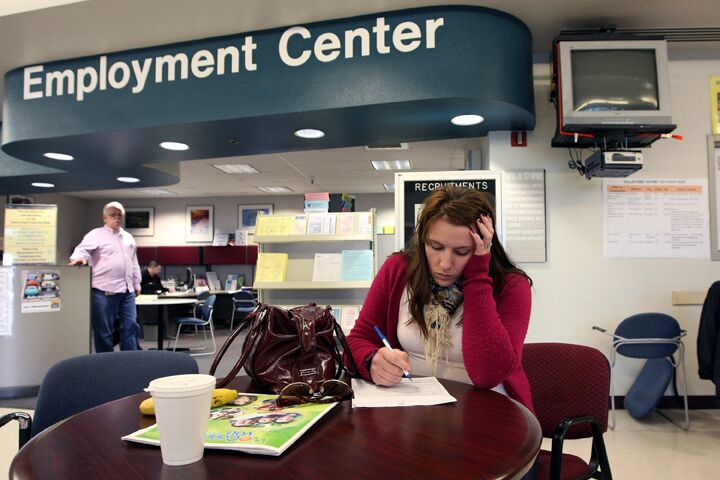
America: One in Six Receives Government Assistance
Analyzing federal and state data, USA Todayreported Monday that one in six Americans receives some form of government anti-poverty assistance. The number is a new national record, and is steadily rising.
The financial help includes such programs as Medicaid, which more than 50 million Americans now depend on, an increase of 17 percent since the recession began in December 2007.
The number receiving food stamps is equally foreboding: more than 40 million people, an increase of 50 percent since the economy began to collapse. The number receiving unemployment benefits has quadrupled since 2007 to almost 10 million, and the welfare roster now includes 4.4 million Americans, up 18 percent since the economic downturn began.
This surge in growth exerts great pressure on the federal and state programs, increasing their costs to unprecedented levels. Here’s more from USA Today’s Richard Wolf:
As caseloads for all the programs have soared, so have costs. The federal price tag for Medicaid has jumped 36 percent in two years, to $273 billion. Jobless benefits have soared from $43 billion to $160 billion. The food stamps program has risen 80 percent, to $70 billion. Welfare is up 24 percent, to $22 billion. Taken together, they cost more than Medicare.
The steady climb in safety-net program caseloads and costs has come as a result of two factors: The recession has boosted the number who qualify under existing rules. And the White House, Congress and states have expanded eligibility and benefits. Conservatives fear expanded safety-net programs won’t contract after the economy recovers. “They’re much harder to unwind in the long term,” says Michael Tanner of the Cato Institute, a libertarian think tank.
As the government released the figures about the spike in anti-poverty programs, demands for a second economic stimulus heated up. But a second attempt at spending the nation out of financial trouble won’t work any better than the first.
In his October 2007 article “The United Welfare States of America,” Trumpet columnist Robert Morley wrote this about the U.S.:
It has become a nation of big government and big taxes. Contrary to the principles set forth by America’s Founding Fathers—principles involving a small, efficient, service-oriented government; principles that helped make the American republic great—America has morphed into a social welfare behemoth. … Government has become so large and all-encompassing that it acts like a big mother hen still nurturing her 40-year-old children who refuse to leave the family nest. This big-mother approach promotes a culture of irresponsibility.
In the three years since that article was published, dependency on social programs has surged, and fostered the steady spread of the culture of irresponsibility. To understand the prophetic significance of America’s deteriorating economy, and where it will ultimately lead, read Herbert W. Armstrong’s masterful work The United States and Britain in Prophecy.
